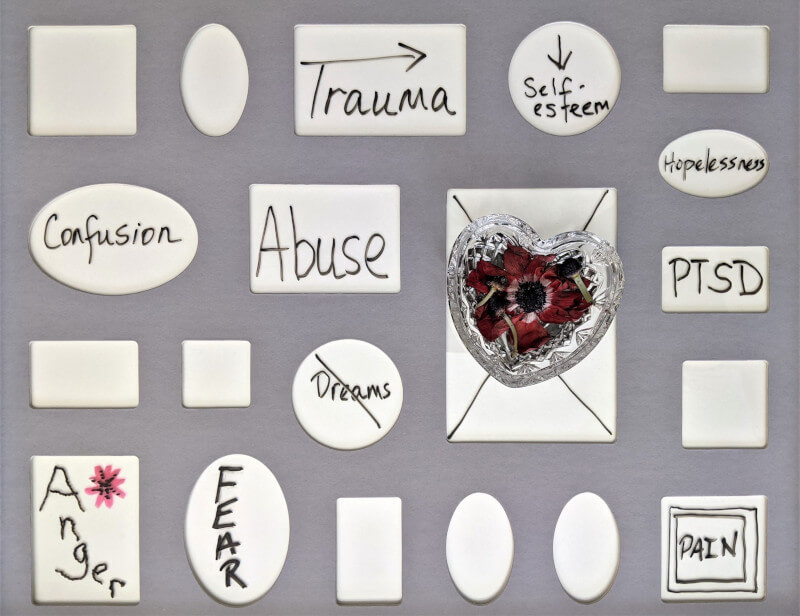A minimum of 5 million South Africans, or 10% of the total population, have experienced PTSD at a severe enough level that they can be diagnosed and could benefit from seeing a psychologist. Everyone who has endured a traumatic event, such as a violent crime, a hijacking, a rape, familial violence, a catastrophic automobile accident, or a persistent sickness, may be affected by the event in the long run.
There is a wider economic repercussion from trauma than just on the person or group directly affected. Trauma has far-reaching consequences that affect more than just the victim. The South African Depression and Anxiety Group (SADAG) estimates that PTSD adds almost R40 billion annually to the country’s healthcare and social welfare costs due to the variety of medical and behavioural issues it causes.
When Crisis Occurs, What Makes It Different from Trauma?

If decisive action needs to be taken in response to an event, we have reached a moment of crisis. A decision made in a moment of crisis can have far-reaching consequences for a person, a group of people (such as a family), a community, or even society as a whole. A choice made during a moment of crisis will nearly always have lasting effects, either vastly improving or drastically worsening the situation. For this reason, it’s reasonable to view a crisis as a watershed moment that can and shuold be guided by a professional.
Exposure to a Traumatic Event Can Have Lasting Effects on a Person
It can leave a lasting mark on a person, a group (like a family), a community, or even a nation. Exactly what is Trauma? What we mean when we talk about trauma is a serious injury to the mind that has lasting effects on a person’s mental health and ability to go about their daily lives normally. Often, the traumatic event becomes all that a person can think about, making it difficult to focus, muddying judgment, and weakening the person’s ability to cope. Moderate to severe reactions, such as shock, disorientation, numbness, melancholy, and anxiety, can last for weeks, months, or years after the traumatic experience.
Counselling for Trauma in South Africa
Psychological trauma affects a huge portion of the population in the United States, and researchers, activists, and healthcare professionals have repeatedly (and increasingly urgently) urged government leaders to do something about it. More trauma counsellors are desperately needed in South Africa. There is little possibility of ever reversing the tide on our country’s inherited pain and halting its chronic devastation without the important service these skilled experts perform.
Trauma Therapy is Always Adapted to the Needs of the Patient
There has never been a lockdown like COVID-19, so we don’t know what it will do to people psychologically, physically, or emotionally. Trauma can be triggered in both individuals and societies by the unexpected and extreme distress caused by these occurrences. It follows that the prolonged impact of the lockdown on South Africa’s adults and children will only raise the demand for trauma counsellors there.
Why Should I Go to Therapy After a Trauma?

Experiencing trauma can have lasting effects on a person’s well-being and interpersonal connections. Not only that, but dealing with its aftereffects can be challenging in a variety of contexts, including the workplace, social situations, and academic environments. Because of this, trauma therapy has the potential to boost life satisfaction. The effects of trauma on a client’s life may not become apparent until they receive trauma therapy. Although it may be tough to confront those traumatic events and discuss them regularly with a medical practitioner, symptoms can improve with trauma therapy. In addition to these gains, trauma therapy has other advantages, such as:
Acknowledge the Pain You’ve Experienced
Psychotherapy for trauma survivors can help them work through their reactions to the experience and gain insight into their emotions and actions. It is possible to move from a feeling of helplessness to one of empowerment through the process of reflecting on and learning from one’s experiences. Having your experiences explained to you may also serve as a gentle reminder that you aren’t alone in having them.
Acknowledgment
Recognizing the significance of the trauma experienced is central to trauma-focused therapy. It is the goal of our counsellors to provide a welcoming environment free of criticism and stigma so that you can feel comfortable sharing your story.
Establish the Ability to Deal
How you engage with the world changes after experiencing trauma. When recollections of horrific events arise, do you feel overwhelmed?
To better deal with the stresses of daily life, your therapist can assist you in developing new coping mechanisms. Practical issues stemming from trauma can be addressed through coping strategies, such as overcoming an aversion to crowds or heights. They also aid in the resolution of anger management issues and the implementation of major changes to one’s life strategy, such as the pursuit of a more fulfilling career or the enhancement of one’s marriage.
Learning to Value Oneself and Overcoming Shame
A low sense of value typically has its roots in traumatic experiences. Stress and trauma can be caused by being subjected to persistent and severe criticism, disapproval from authority figures, or harassment at school or work. As a result, they might cause serious mental scarring. An internalisation of the pain is a common reaction to such trauma. Maybe you feel like you have no value.
Low Self-worth Frequently Goes Hand in Hand With Poisonous Shame
It’s like being hit with two stones at once. After experiencing trauma, you may then go on to subject yourself to other, less severe trauma. In therapy, the roots of self-doubt and guilt are unearthed, and their destructive force is exposed and dismantled. Your therapist can help you start the road to recovery by providing you with tools that will change your life forever. You can rediscover a self-concept in which self-rejection is unnecessary and toxic guilt has no place.
Restoring Your Confidence in Yourself
Trauma is an assault on one’s sense of self and the world. This holds not only for the traumas that individuals experience but also for the traumas that communities experience as a result of things like natural catastrophes and wars. The horrible event breaks you apart inside. It destroys your belief that the world is safe and can be controlled.
You Can Recover Your Strength and Resilience by Reestablishing Your Sense of Self Through Trauma Treatment
In addition, your therapist personifies everything good and trustworthy in the world. Trauma therapy can have profound effects. It helps you get back to basics, reconnect with yourself, and heal in the long run. Then, and only then, will you be able to go forward with your life and make the changes you want to.
Taking that First Step is The Key
Therapy Now is here to lend a hand in the reconstruction of your life after trauma, whether it be physical, mental, or spiritual. If you want to discuss how they can work together with you to meet your therapeutic objectives as swiftly and effectively as possible, visit their page to schedule a counselling session.

Is a major mental disease affecting your life or the life of someone you know?…

Do you feel like you have a problem with your emotional health? Are you curious…

When someone is diagnosed with tuberculosis (TB), they face a number of challenges, including social…

Do you ever feel like someone else entirely? As though you have no idea what’s…



